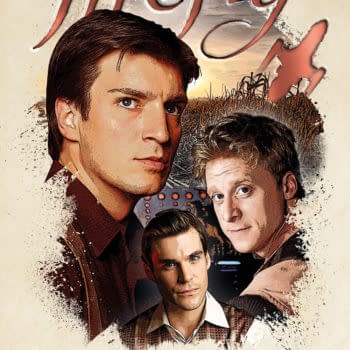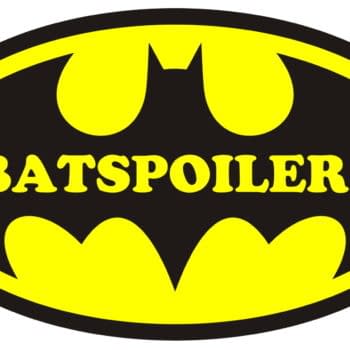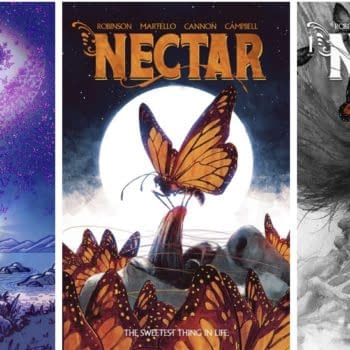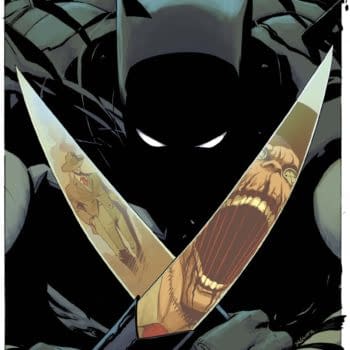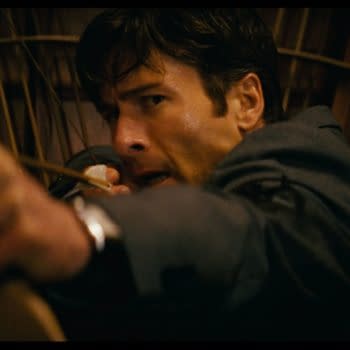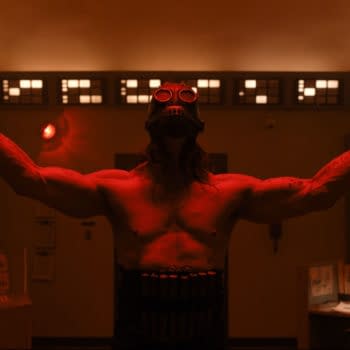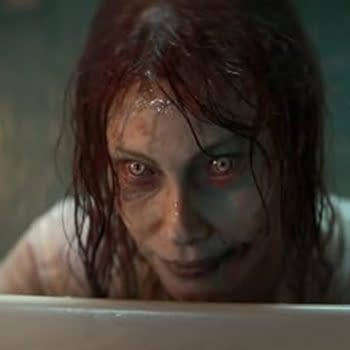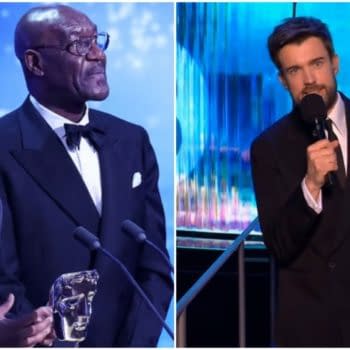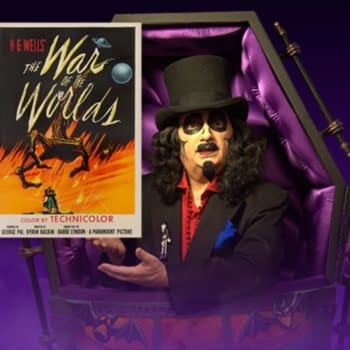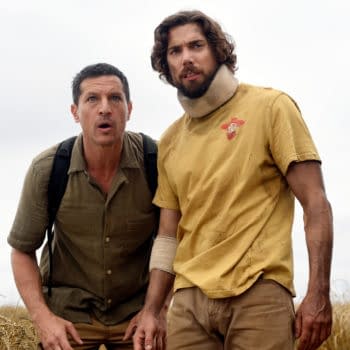Posted in: Movies | Tagged: mad men, skyfall, the master
Look! It Moves! by Adi Tantimedh: Mastering The Master
Adi Tantimedh writes for Bleeding Cool;
How The Master, Skyfall and Mad Men are linked.
Finally saw The Master. It's a true cinematic curio: a genuine American arthouse film. Unlike mainstream Hollywood commercial movies, arthouse films aspire to lofty ideals, refusing to provide easy answers or user-friendly hints. They thrive in mystery, which is something mainstream Hollywood movies cannot abide, the latter often feeling the need to answer every question and leave no ambiguity unanswered.
Every now and then, after all the Dark Knights rising, the Avengers avenging, it's good to see an arthouse movie, especially when claiming to worship at the altar of Cinema.
Arthouse movies aren't always fun. They can be like homework or medicine because they're supposed to give you something you might need in terms of intellectual or psychic nourishment. Arthouse movies trade in mystery, ambiguity and difficult questions and uncomfortable emotions, and are very hard to pull off. Cloud Atlas tries very hard to be an arthouse film but fails with a loud clunk. You have to steel yourself to see an arthouse film, get in the mood. To actively seek out and watch an arthouse film is act of real commitment, one that outsiders might consider pretentious and masochistic and they have a point. The Master was shot on film, and projected in 70mm at that. It may be the last movie to be shown in 70mm in this generation as studios move to shoot and project movies digitally and traditional film labs like Kodak are getting rid of film altogether. Going to see The Master in the cinema becomes a point of principle: a gesture of support for Film and Cinema.
The Master is like a gonzo combination of John Ford and Ingmar Bergman: wide open, yet oblique and mysterious, yet full of heartache and sadness. It is wiser than you expect, yet it is also a mental litmus test, only giving back as much as you put in. It deliberately neglects conventional narrative drive, and many reviewers and viewers have found it obscure and reacted badly, calling it pointless or boring, thinking it goes nowhere when in fact it is very precise in what it sets out to explore. People have made the mistake of looking for a definitive, deterministic message in The Master, when it refuses to offer one. It is more interested in questions than doling out answers, it is more about theme than plot. The latter is what also defines arthouse cinema. In The Master, God is in the details.
The Master is another piece of "The Past as Science Fiction", depicting the lost world of 1950 as a place almost utterly alien to the present we know. It is about postwar existential malaise in America, the emptiness at the core of the American Dream and the struggle with libido and the Freudian yearning for the Feminine, about spiritual quests beyond conventional religion, the New Age movement and the rise of cults based on cod-psychology.
The Master is a love story between two men who don't fully articulate why they're drawn to each other in a weird co-dependent relationship, the master-pupil dynamic between a guru and his newest disciple. Joaquin Phoenix' impulsive, unhappy and lost Freddie Quell isn't just an animal – what made him one is pretty much spelled out to anyone who understand Psychology: he's the result of PTSD from the War and trauma from childhood abuse, the loss of his mother, culminating in addiction, impulsiveness, poor impulse control and mild psychosis, all of which are treatable by today's psychiatric standards, and it's very telling how few reviewers understood that about the character or Psychology in general. But this isn't a conventional movie about him getting well and learning a big life lesson, even though he is subtly different by the end of the story, so subtly that many viewers have completely missed it.
The Master is not a satire of Scientology or commentary on L. Ron Hubbard so much as inspired by Hubbard because he has been the most successful of the post-war gurus-turned-cult leaders. Philip Seymour Hoffman's Lancaster Dodd is both L. Ron and Not L. Ron. Anyone who goes into The Master expecting a critique of Scientology would be – and has been – sorely disappointed.The Master is really about the post-war New Age scene in America before the Hippie era. You could say it's L. Ron fanfic with the serial numbers filed off. Dodd is not L. Ron Hubbard so much as a reference point, a touchstone for every would-be guru after World War II – for there were many of them – trading on America's newfound desire for spiritual enlightenment and psychic fulfillment. He appears to genuinely believe he can help people with his brand of amateur psychotherapy dressed up with bells and whistles and mystical mumbo-jumbo he made up, and turning the practice into a cult is an offshoot of his narcissism and charlatanism. He's a Dionysian huckster, light on his feet and reaching for the heavens, all shiny superego eager to kiss the stars.
The Master is really about the struggle between Man's basic animalistic nature and his aspiration to become a higher being, and that makes it a theatrical edge since it's more about that theme than any real plot. Joaquin Phoenix' performance is deliberately theatrically simian, heavy and earthy and grounded just as Philip Seymour Hoffman's is light and airy, as if ready to take flight. The acting here is precise and hyperreal, intended to illuminate and offer insight. The real answers are in the nuances and flickers of every gesture, every flicker of reaction in the actors' faces and bodies. Freddie Quell and Lancaster Dodd form a co-dependent friendship because they recognise in the other their shadow selves, each envying the qualities in the other that they themselves might admire, desire, but ultimately reject. Dodd feels genuine pity for Freddie and wishes to cure him of his unhappiness while Freddie is fiercely loyal and protective of what he sees as Dodd's aspirating to high ideals, even if they're in fact fraudulent and self-serving ideals. It's a relationship that's potentially destructive to them both, but as they embody the dual nature of Man, the struggle never goes beyond an uneasy stalemate that will never budge. Dodd's final speech to Freddie is filled with the kind of complexity that novelists aspire to, where he displays not only a final understanding of the nature of their bond, but also love, envy and jealousy, with a twist that might push the story into the realms of mysticism and Science Fiction. Joaquin Phoenix has said that he considers The Master a comedy, and he has a point in the surreal, absurd quality of the story, though I found it full of heartache and melancholy. If all stories are autobiography, could The Master really be Paul Anderson's fictional enquiry into what he sees as the struggles of his own dual nature, where Freddie Quell and Lancaster Dodd are really the two sides of the director? Again, one of the tenets of arthouse cinema is that they are fiercely auteurist.
In its refusal to give up its mysteries and spoon-feed answers, The Master is like the dark arthouse flipside of Skyfall, with the latter's cross-every-T-and-dot-every-I approach to give the traumatised and dissolute James Bond a somewhat simplistic Freudian backstory with mommy issues. Skyfall has the same melancholy existential core, even down to Bond's desperate need to protect Judi Dench's harsh matriarch M and win her maternal love, the latter a parallel to Freddie Quell's relationship with Dodd's ruthlessly practical wife as played by Amy Adams. Our current James Bond is equally doomed and lost. Consider this the most surreal Double Feature this season. That aside, I'll leave how stupid and full of plausibility gaps Skyfall's script was to another time.
In its portrayal of post-war American existential malaise and the conflict between individual freedom and conformity, it's easy to imagine The Master in the same universe as Mad Men, taking place in the decade before Don Draper returns from the Korean War also suffering from PTSD and facing a very similar struggle to be free or having to conform while suffering from addictive behaviour. You can add to this universe both the novel and movie versions of Revolutionary Road (also directed by Skyfall's Sam Mendes), the book being a major influence in the creation of Mad Men.
I can imagine an alternate universe where the Paul W.S. Anderson of the Resident Evil movies made The Master, but there it's a $100 million Doctor Who spinoff. It would star Milla Jovovich, of course. It wouldn't be an arthouse film, but you know, I'd still watch it.
And here on, it's back to big explosions and gratuitous violence.
Being animal, mineral and vegetable at lookitmoves@gmail.com
Follow the official LOOK! IT MOVES! twitter feed at http://twitter.com/lookitmoves for thoughts and snark on media and pop culture, stuff for future columns and stuff I may never spend a whole column writing about.
Look! It Moves! © Adisakdi Tantimedh
















